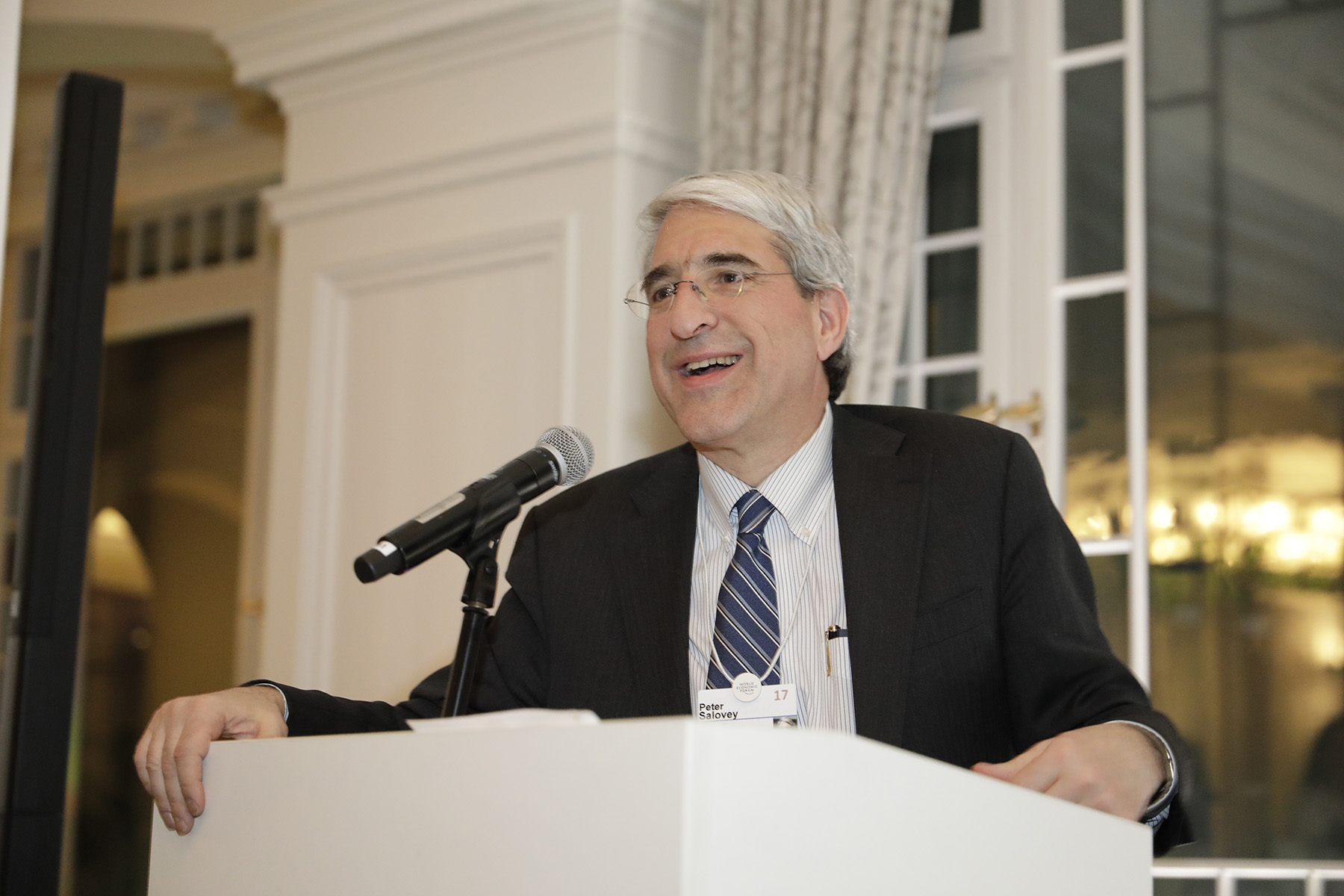
Yale University Office of the President
As he prepares for the first big fundraising campaign of his tenure, University President Peter Salovey is considering a number of ways to promote Yale’s research in public policy, including potentially creating a new professional school.
The study of domestic and international policy at Yale is currently spread across multiple venues, from the Jackson Institute for Global Affairs to the School of Forestry & Environmental Studies to the Political Science Department. In an interview last Wednesday, Salovey told the News that the University might take steps to enhance those offerings as part of its upcoming capital campaign — which is likely to begin in the next two years — and that one option is to open a public policy school akin to the Woodrow Wilson School of Public and International Affairs at Princeton University or the John F. Kennedy School of Government at Harvard University.
“The real question is always what’s the best way to organize all that, so that it is intellectually as lively as possible and has the most impact on the world,” Salovey said. “It’s too early to know whether the best model for that is a network, a consortium, a mega institute, a school — that’s going to take a lot of study.”
Yale has not launched a new professional school since 1976, when the School of Management opened its doors to students. The process of opening a new school is highly complex: In 2010, rather than building a physical school, Yale launched the Jackson Institute, thus avoiding the high costs associated with constructing new facilities and creating a vast administrative infrastructure from scratch.
In an interview with the News, Vice President for Development and Alumni Affairs Joan O’Neill said that opening a public policy school — an option that has “been floated out there” over the years — may not represent the best path forward for Yale, especially given the University’s many other fundraising priorities.
“Making the decision to launch a school is a big decision, because you want to do it because it makes sense for Yale,” O’Neill said. “I don’t know that a school of public policy is necessarily what will be a logical next step … there’s things you could do that are short of a school of public policy, you could create an institute that could go into public policy.”
Salovey told the News that public policy research is just one of several possible themes for the next capital campaign, which may also focus on bolstering the sciences or building new connections between Yale’s arts schools, and emphasized that the University remains a long way from committing resources toward the establishment of a school.
“You don’t want to do anything at Yale without knowing that you have the financial resources to support it, and that you can maintain excellence in the quality of faculty and students,” he said.
In interviews with the News, faculty members were divided over whether Yale would benefit from a public policy school. But they agreed that Yale’s current offerings already make the University competitive with elite public policy schools such as those at Harvard and Princeton.
History professor and Jackson Institute member John Gaddis said the University’s decentralized public policy resources encourage original, interdisciplinary projects like the Brady-Johnson Program in Grand Strategy.
Moreover, the relatively small size of the Jackson Institute — whose graduating class this year consists of just 28 graduate students — creates “a very strong sense of community among our graduate students,” said James Levinsohn, who directs the institute.
And according to Levinsohn, although course offerings in the Jackson Institute are more limited than at the Kennedy School, students also have access to programs in professional schools like the Yale Law School, the School of Public Health and the SOM.
In the 1930s, the first public policy schools in the U.S. emerged as training grounds for new government agencies established by the New Deal. But over the decades, critics of public policy schools have complained that universities are losing sight of the real purpose of training students in domestic and international affairs. An early-2000s lawsuit by the Robertson family — which funded the construction of the Wilson School in 1961 — argued that not enough graduates of the school were going into public service.
Still, public policy schools have continued to open at some of the most prestigious universities in the country: In 2013, Georgetown University established the McCourt School of Public Policy, after receiving a $100 million donation from a wealthy alumnus.
According to former University Secretary Sam Chauncey ’57, who was involved in the opening of the SOM in the 1970s, starting a similar school at Yale would be a very difficult process. In the ’70s, the new business school — which was initially spread across multiple buildings — struggled to find a coherent identity, Chauncey said.
“It’s inevitable in an institution that has hundreds of years of history in it, when a new entity is formed it will struggle to find its own way and develop its purposes and goals,” Chauncey said. “So if they do start a public policy school, I think it will have these same growing pains.”
But Levinsohn said Yale could still benefit from a public policy school, as long as the project meets the University’s high standards for academic excellence.
Yale’s current public policy resources will be augmented next fall by the arrival of former Secretary of State John Kerry ’66, who will lead a seminar focused on solving global problems.







